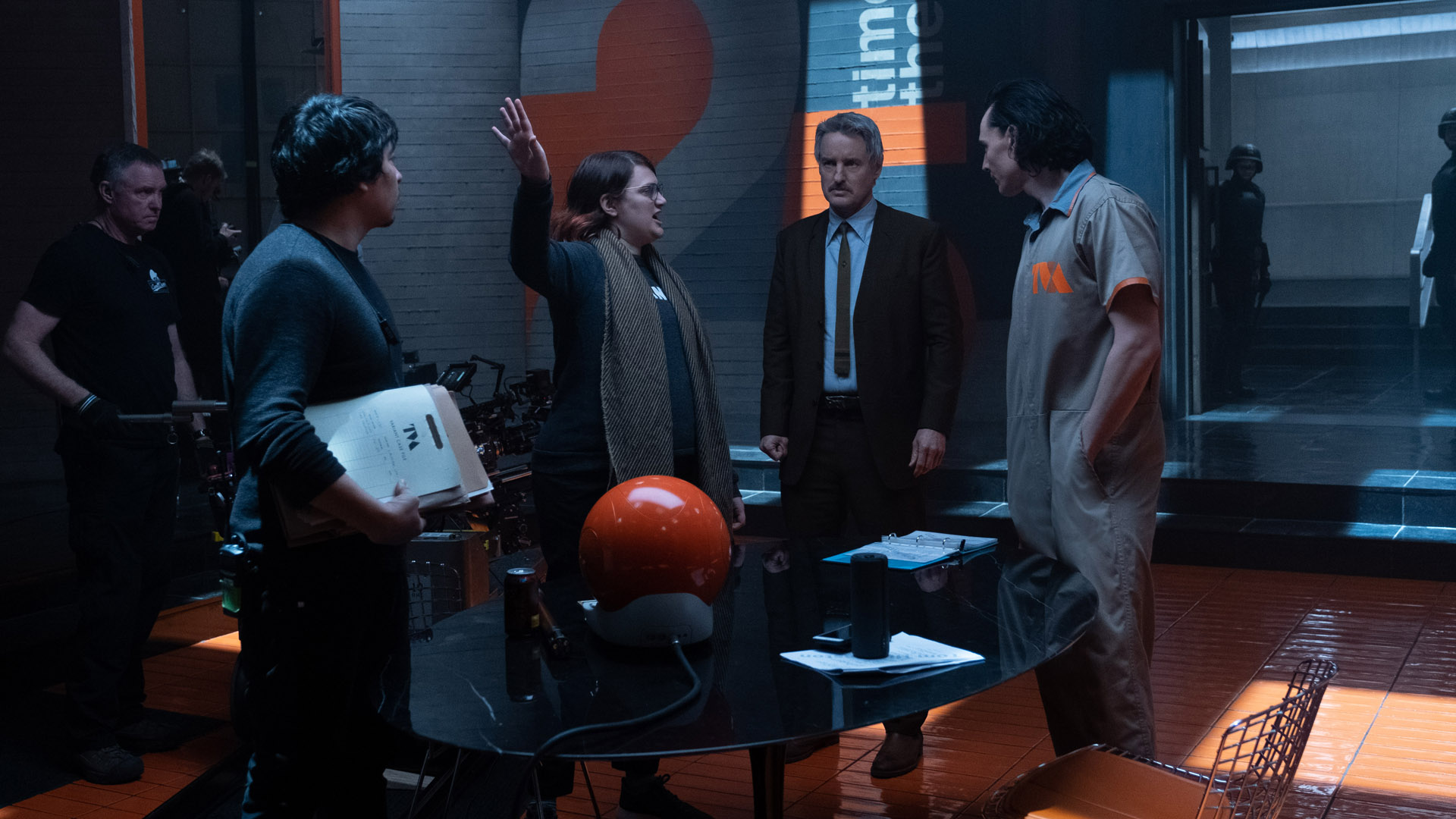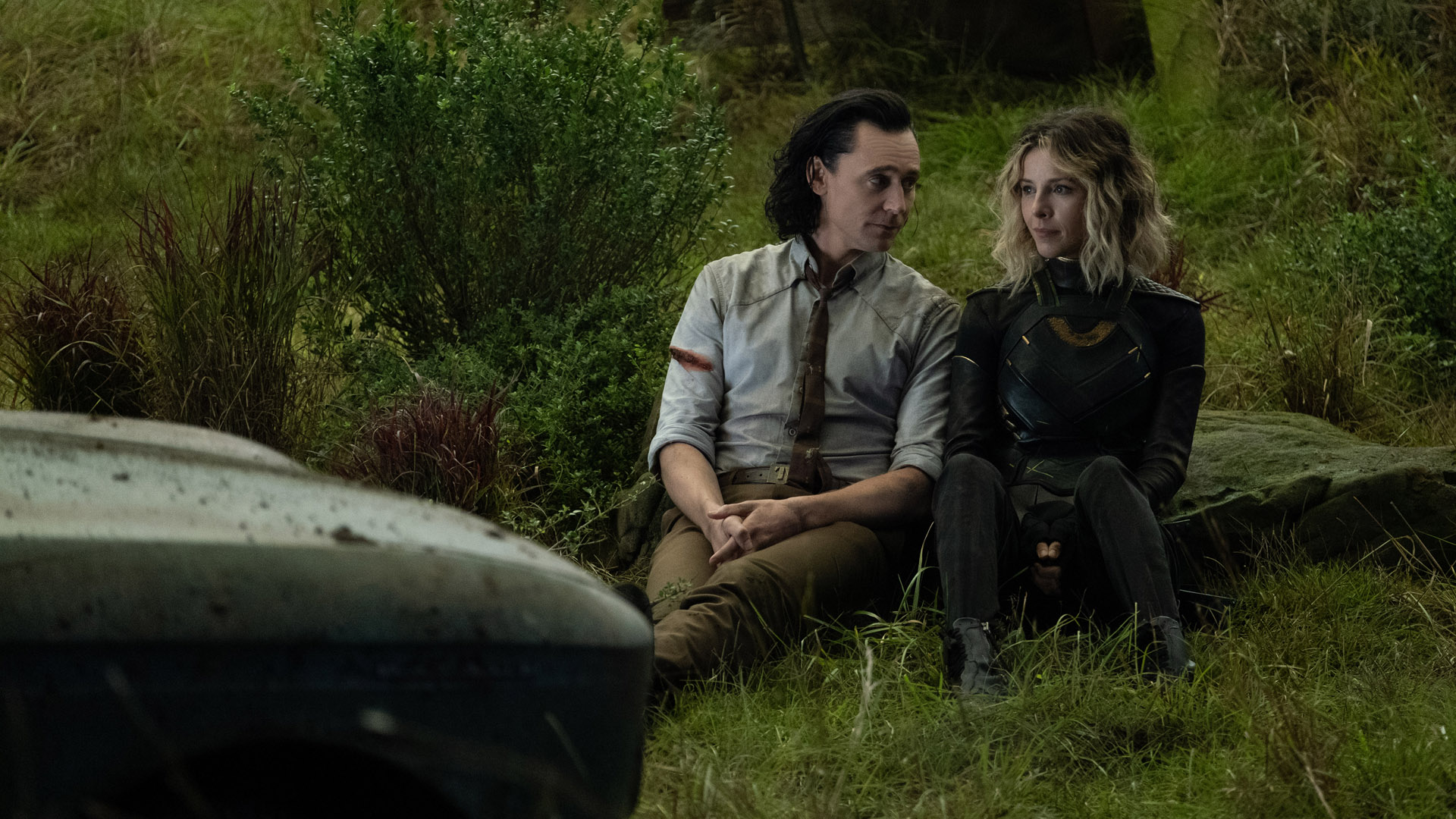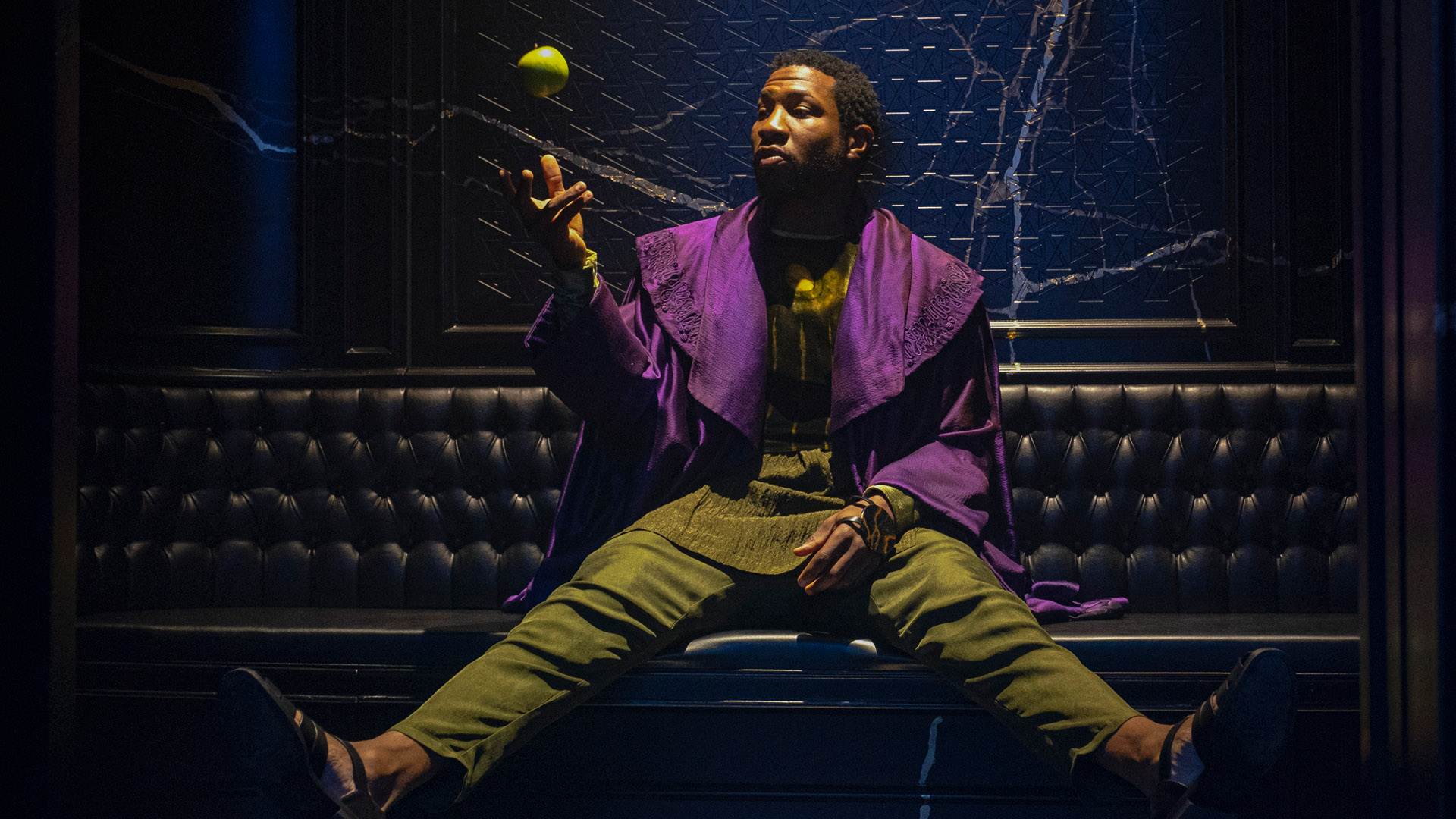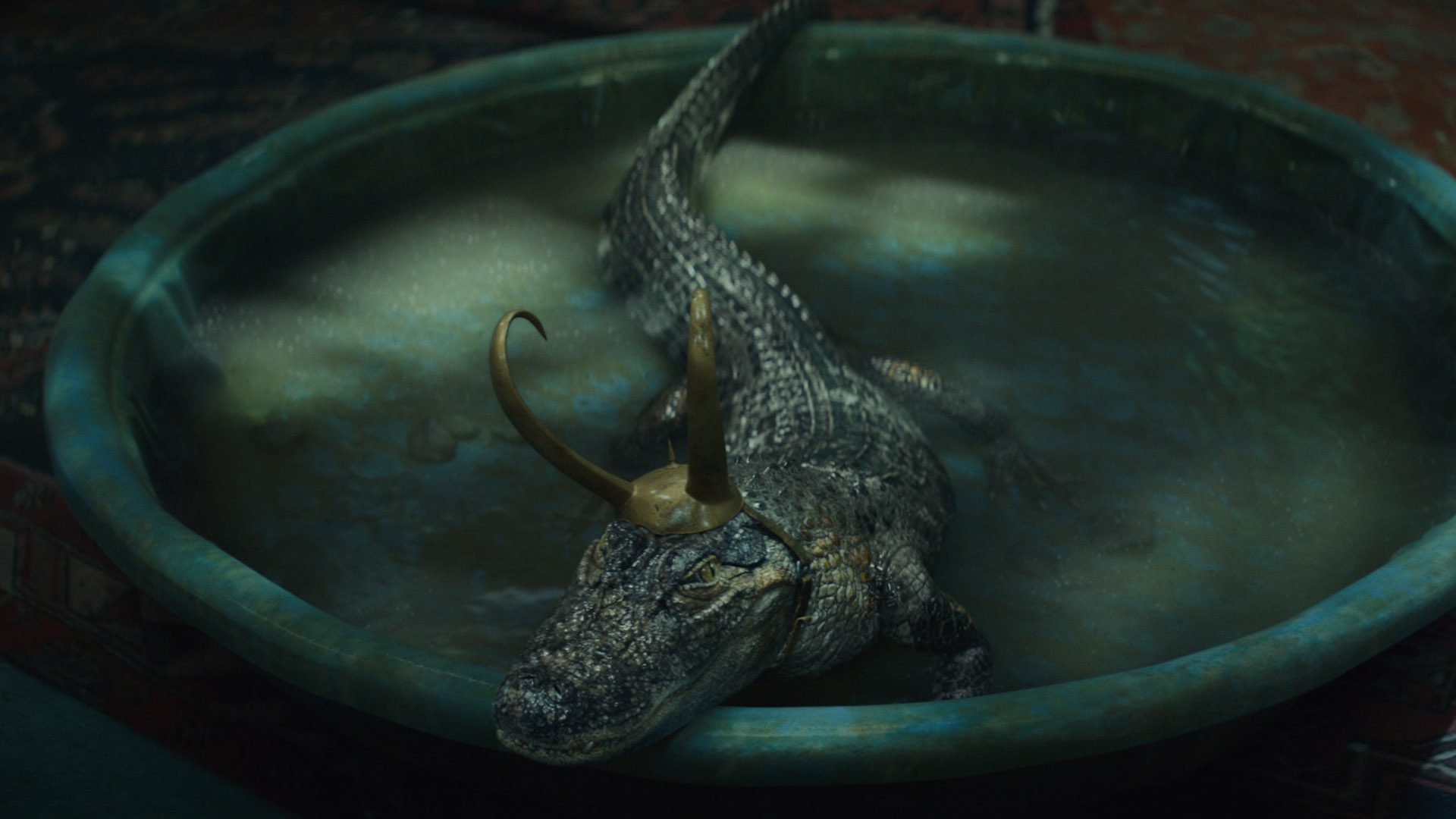Loki director Kate Herron talks He Who Remains, Alligator Loki, and introducing the multiverse
Exclusive: "Kevin Feige was always like, ‘Go bigger, go weirder.’"

Of all the Disney+ MCU shows so far, Loki has really blown things wide open for the franchise. Major spoilers will follow, so please stop reading now and bookmark this page until you’re all caught up with the show.
The show picked up from the moment in Avengers: Endgame where the God of Mischief broke from the 2012-era timeline by disappearing with the tesseract, before being picked up by the Time Variance Authority for his crimes. From there, it only got progressively wilder as Loki learned about variants, the sacred timeline (and all the others), the Time-Keepers, the Void at the end of time, and more.
Then the final episode of Loki Season 1 delivered something that could really change the future of the MCU going forward, as Jonathan Majors’ He Who Remains was introduced at the Citadel at the end of time. Expect his variants to have a major influence on events going forwards, now that all-out multiversal war is threatened.
Total Film and GamesRadar+ had the opportunity to catch up with Loki director Kate Herron this week, now that the series finale has aired and all episodes are available to view on Disney+. Here’s our Q&A below, and again, please be warned that spoilers follow for anyone not up to date with the entire first season:
For you, what was the most exciting thing you got to introduce to the MCU with Loki?
I think the first and foremost excitement for me was just getting to dig back into Loki’s story. Because I think he’s one of the most exciting characters in the MCU, and I think he’s had this just amazing arc over the last 10 years. So the fact that I was getting handed that character was massive for me, because one, I was like, "OK, don’t mess this up." [laughs]
But at the same time, I was just so happy to have the opportunity, because I thought that the arc that was there for him in this story was really exciting, and it was definitely taking him to a new place.
Sign up for the Total Film Newsletter
Bringing all the latest movie news, features, and reviews to your inbox
And then beyond that, obviously, there are the massive repercussions from Episode 6, with He Who Remains and the multiverse. That, again, was another massive thing to be handed. [laughs]
So I was like, "Oh, wow, this is going to be quite big."

When introducing things that huge, do you get a strict rulebook to follow, or is there quite a lot of freedom?
Basically, Marvel always have an executive on every film. So we had Kevin Wright. And there’s kind of a Kevin Wright on every production that is essentially your producer, but they’re also the Marvel gatekeeper, I guess, or the overseer. They have internal meetings to check nothing’s going to ripple too much on other projects.
But I think, really honestly, the genius of Kevin Feige and his team, and Kevin Wright, was that I never felt restricted. When I joined the project, I knew that we were introducing He Who Remains, so that was already kind of set in place.
Mainly, it was just me and the writers being like, "OK, cool, we actually get to do this. OK, great." That was massive for us. But no, I think there’s not so much a restriction, honestly. If you want to pitch an idea or a character or something, if it could have a ripple effect that would affect another project, they will let you know.
But generally, no. I think Kevin Feige was always like, "Go bigger, go weirder." The awesome thing is, they always want what’s best for story. And that wins.

How does the casting of an actor like Jonathan Majors as He Who Remains work in the MCU, where they’re obviously going to play a huge part going forward? Were you involved in the casting?
So, basically, Peyton [Reed, Ant-Man and the Wasp: Quantumania director] and I and Kevin Feige and the executives at Marvel – I was part of that conversation with them, which was a massive honour, because it was such a big decision for them. But no, we had a conversation about what I was looking for with He Who Remains, and what we felt could work best for that role. And then Peyton was obviously talking about what he was looking for with his role.
But I think for us, like, united, it was that we were all just so excited about Jonathan Majors. He’s an amazing actor. I was part of that conversation in that sense, and I can’t speak for other projects – obviously if there’s any crossover roles for people – but that’s how we handled it on our show.
What influences and reference points did you and Jonathan talk about for He Who Remains?
I think we both definitely spoke about The Wizard of Oz, because Jonathan also does the voice of the Time Keepers in Episode 4. Because basically, when we cast him, I hadn’t found someone to do the voice of the characters, and The Wizard of Oz is obviously a clear reference for us as a team.
And I was like, "Oh, it has to be the Wizard. Let’s get Jonathan, because he’s an amazing character actor."
I remember sending him the art of the Time Keepers, and he was sending me and Kevin Wright back all these incredible voices. And we were like, "This is so cool."
So that definitely fed in as a reference. And I know that for Jonathan, as well, Willy Wonka was a big one for him. And his work as a clown. He studied clowning. I know he definitely brought that to the role.
Honestly, with Jonathan, we spoke more about the themes, to be honest, like free will. And also, we spoke about the extrovert and the introvert, in the sense that, it’s introverted because he’s living on his own, which is kind of fun, and probably the only person he really talks to is a cartoon clock.
But then there’s the extrovert in the sense that he’s a great storyteller. I know that the writers drew a lot from entrepreneurs and that kind of showmanship. That kind of all melded together.
But with Jonathan, honestly, he’s just such an amazing actor. I think it was really, for us, just talking about the emotional high and low points when we want the audience to believe him.
Because like Loki and Sylvie, there needs to be so much that you can be on Sylvie’s side, and be like, "I think this guy’s a liar."
But then he needs to be convincing as well. Because I think, for me, when he says, "Just wait until you meet my variants" – for me, I feel like he’s telling the truth there. And that makes me excited as a fan for what’s to come. But also, it makes me like, "No! Don’t do that! What are you doing, Sylvie?"
I think that was really fun, and working with Jonathan like that was really helpful. But honestly, he’s so good. You’ve got to just let him go.

Were there any Loki variants you liked the idea of that didn’t make the cut?
I feel so happy because we got Kid Loki in there, which was a big one for me. And then when we were talking about Classic Loki, that was exciting because the costume was up in the air for a while. And then I was like, "I think it’d be cool if he’s in the older-style costume, because I like the idea of him looking like he was from a movie made about Loki from maybe 40 years ago." Which I thought was kind of fun.
But no, I really love all our Lokis. I think DeObia’s [Oparei, Boastful Loki] is really fun, because it’s a completely unique creation. Alligator is wild. That’s from the writers, and I thought that was so funny. And we’ve got President in there.
There’s always so many more Lokis, I’m sure, to bring in there. But I feel like we’ve got a really good selection of them all. And I’m very happy with the ones we have in there.
Alligator Loki was immensely popular, what was his backstory in your mind? A Loki transformed into an alligator, or does he come from a world where everyone’s an alligator?
My assistant actually had an amazing theory. He thought that he was Thor, and that Richard [E. Grant]’s character [Classic Loki] had transformed him into an alligator, and was pretending that he was a Loki. Which I thought was really twisted and quite funny.
I guess my interpretation is… oh, I’m not sure. I love the idea of a world of alligators, though. That’s really fun. But part of me finds it funnier, almost, if he just turned into one, and something went wrong. There’s something quite nice about that.
An Alligator Loki is something that we all found hysterically funny. But I think the real challenge for me in terms of directing it, and working with a visual effects team, was that there had to be a line when they’re discussing if he’s a Loki or not in the barbershop.
I think it’s like He Who Remains in the sense of: is he lying or is he not? With Alligator, it had to be like, "OK, there has to be a believable level that this could just be an alligator they’ve put horns on." But at the same time, some of his actions, like when he bites off the hand of President – then you’re like, “Well, I think he is a Loki!” Which I think is quite beautiful. I think for me, that was always the fun – kind of giving people enough to debate it either way.
Loki Season 1 is available to stream on Disney+ now.

I'm the Editor at Total Film magazine, overseeing the running of the mag, and generally obsessing over all things Nolan, Kubrick and Pixar. Over the past decade I've worked in various roles for TF online and in print, including at GamesRadar+, and you can often hear me nattering on the Inside Total Film podcast. Bucket-list-ticking career highlights have included reporting from the set of Tenet and Avengers: Infinity War, as well as covering Comic-Con, TIFF and the Sundance Film Festival.


